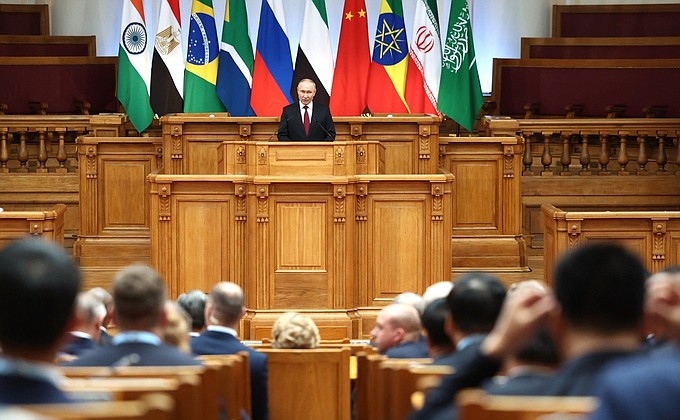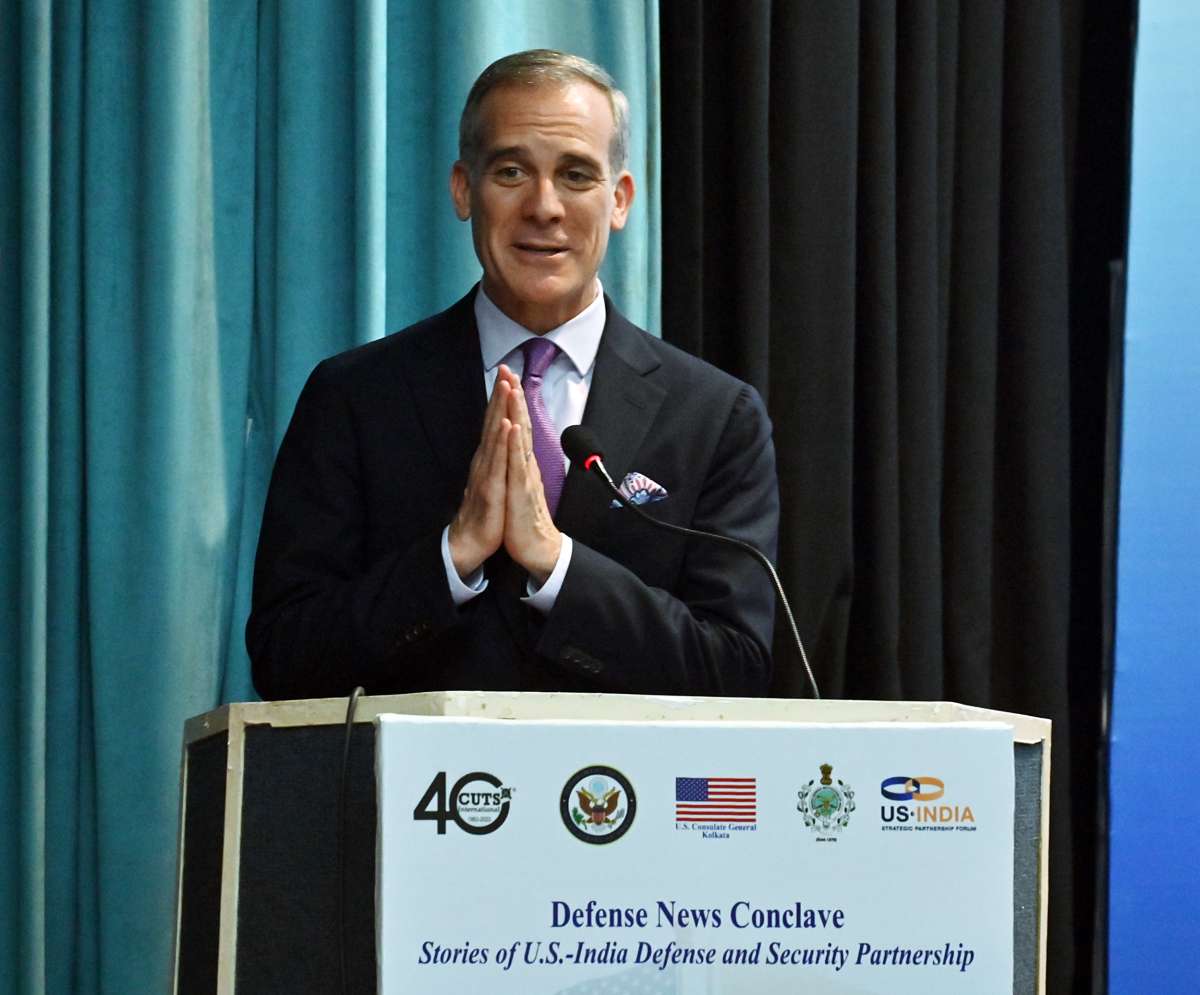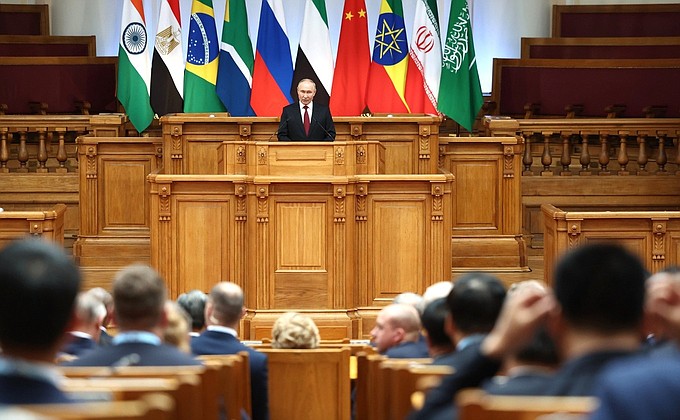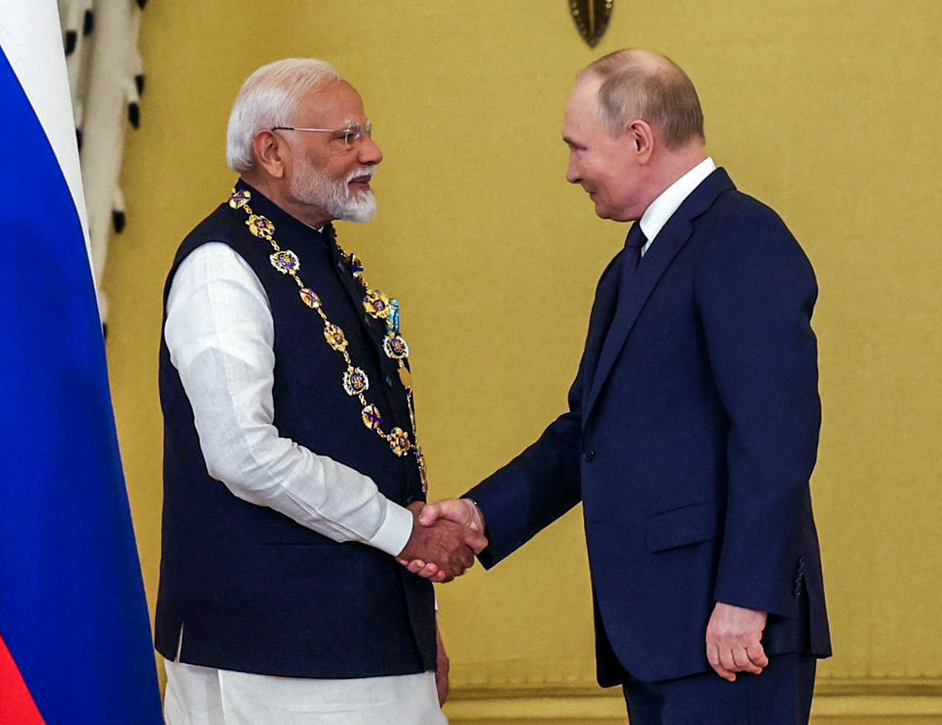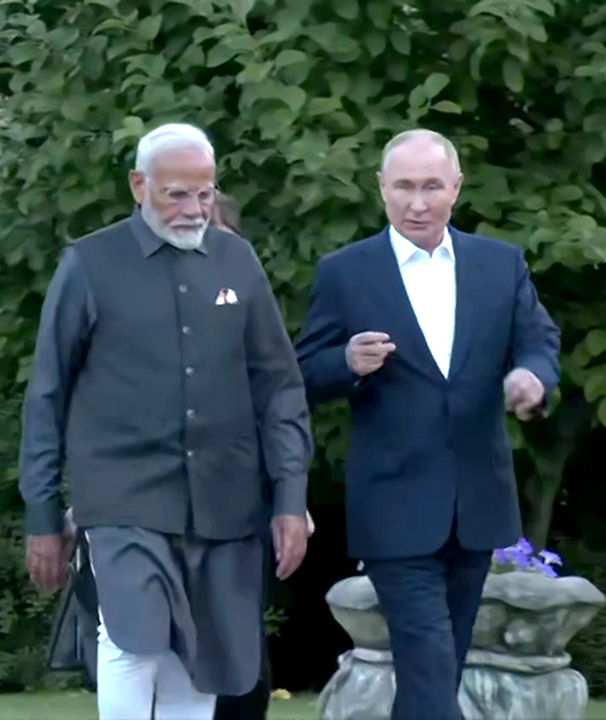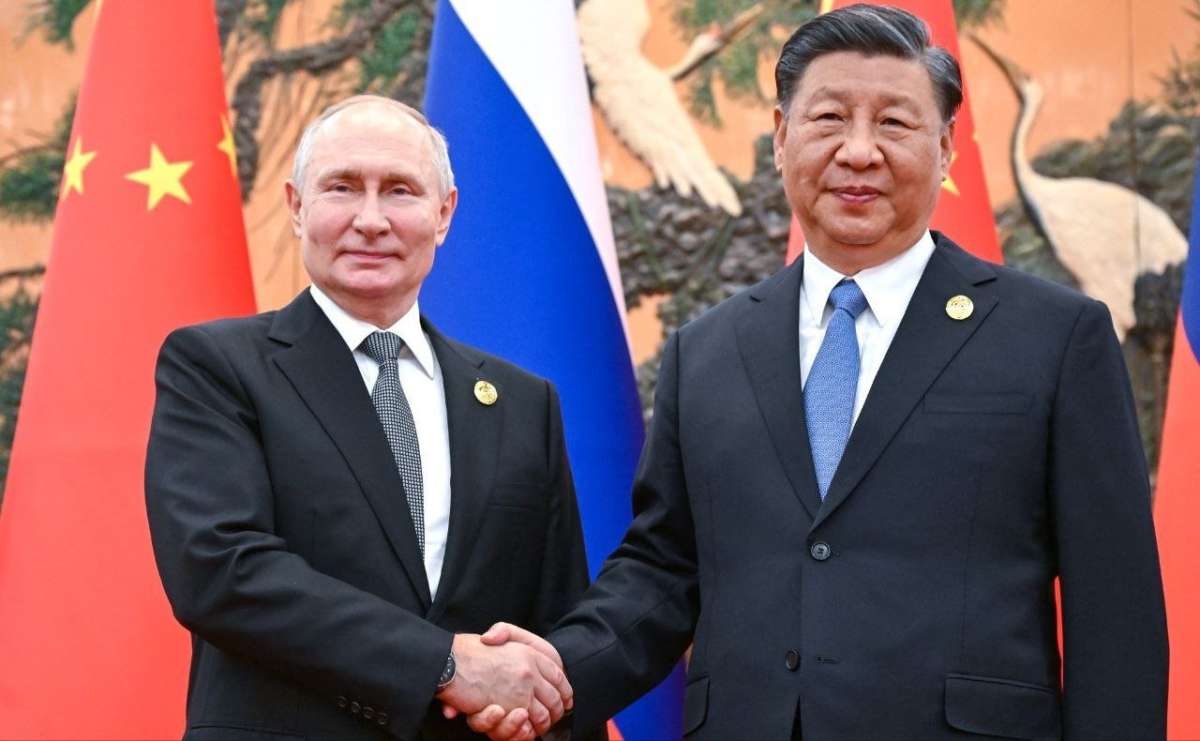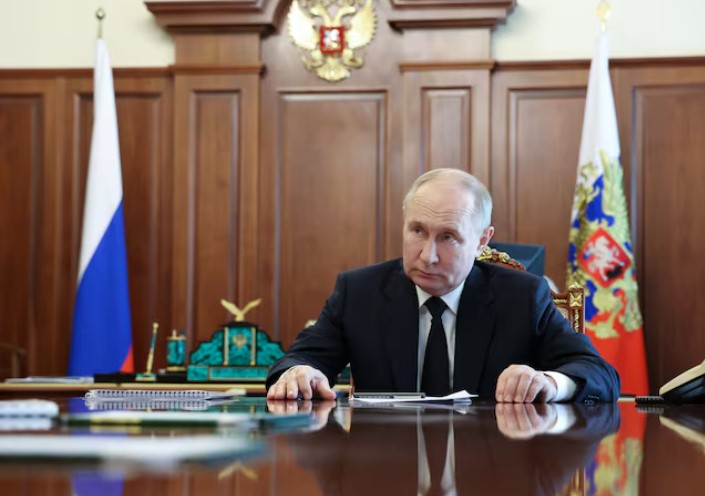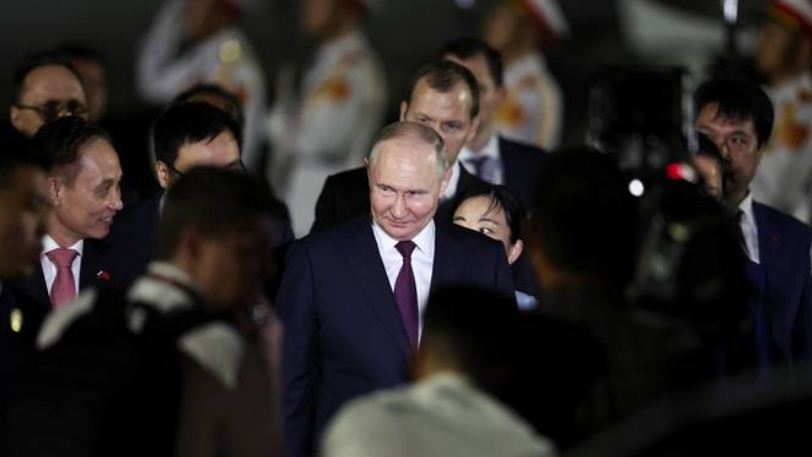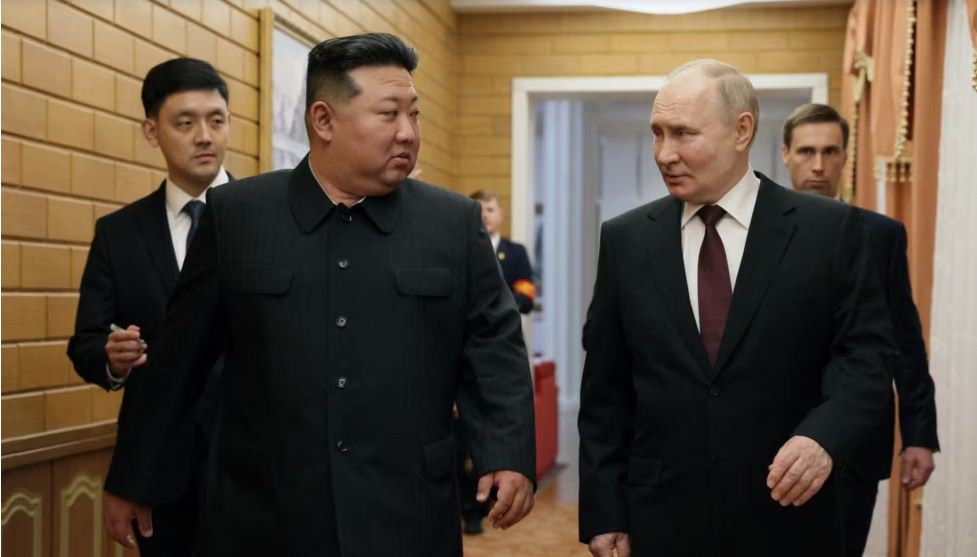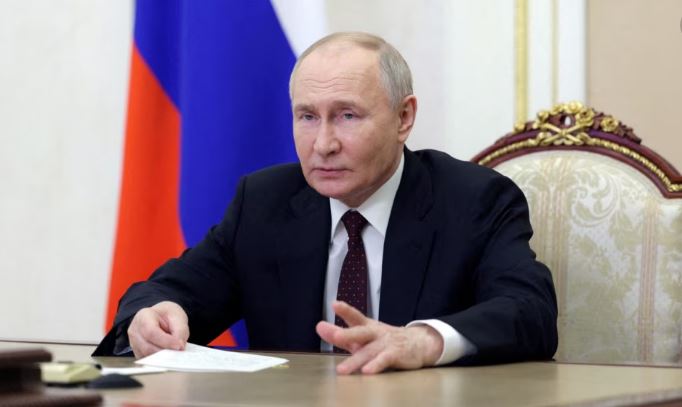During their meeting, Putin presented Kim with an Aurus car, repeating a gift from a previous encounter, and a tea set, while details of what Putin received were not disclosed but described as “also good gifts” by his aide Yuri Ushakov…reports Asian Lite News
Vladimir Putin has declared a significant elevation in ties between Russia and North Korea, emphasising a commitment to mutual assistance in the event of aggression, following what he described as a “breakthrough” strategic partnership announced during his rare visit to the reclusive state, CNN reported.
Thousands of North Koreans chanting “welcome Putin” lined the city’s wide boulevards brandishing Russian and North Korean flags and bouquets of flowers as Putin commenced his first visit to North Korea in 24 years.
According to Russian state news agency TASS, the leaders signed a comprehensive partnership agreement that supersedes previous accords from 1961, 2000, and 2001. Putin elaborated on the agreement, stating, “The comprehensive partnership agreement signed today includes, among other things, the provision of mutual assistance in the event of aggression against one of the parties to this agreement.”
He hailed the pact as covering political, trade, investment, cultural, and security spheres, labelling it a “truly breakthrough document.” Putin also criticised joint military exercises involving the United States, South Korea, and Japan as “hostile” towards North Korea, characterizing US policy as “confrontational.” In response, Kim Jong-un praised the new “alliance” as a pivotal moment in bilateral relations.
The visit saw exuberant celebrations at a welcome ceremony in Kim Il Sung Square, where mounted soldiers, military personnel, and children with balloons cheered against a backdrop of large portraits of the two leaders. They exchanged greetings and stood together as the Russian national anthem played, later riding in an open-top limousine, smiling and waving to crowds, as reported by CNN.
During their meeting, Putin presented Kim with an Aurus car, repeating a gift from a previous encounter, and a tea set, while details of what Putin received were not disclosed but described as “also good gifts” by his aide Yuri Ushakov.
Putin arrived in North Korea exactly 24 years after his last visit to Pyongyang, heralding a deepening alignment between the two nations amid mutual animosity towards the West and international concerns over their growing military cooperation.
Accusations by multiple governments suggest Pyongyang has provided arms to Moscow for its ongoing conflict in Ukraine, allegations both countries have denied despite substantial evidence. Ahead of their talks, Kim expressed full support for Russia’s efforts, particularly in Ukraine, to protect sovereignty, safety, and territorial stability.
Putin underscored the relationship’s foundation on equality and mutual respect, foreseeing a new bilateral agreement as a cornerstone for future relations. He expressed hope for Kim’s visit to Moscow for their next meeting, according to CNN.
The burgeoning relationship has raised concerns in Seoul and Washington over North Korea’s arms transfers to Russia and the potential for Moscow to support Pyongyang’s heavily sanctioned weapons program with advanced military technology.
Kim, continuing a dynasty’s firm rule over North Korea, welcomed Putin visibly at the airport, marking a significant diplomatic boost amid heavy sanctions on missile and nuclear programs, with no other world leader visiting since the pandemic.
Tensions remain high on the Korean Peninsula, exacerbated by Kim’s recent bellicose rhetoric and abandonment of a policy seeking peaceful reunification with South Korea, reacting to increased coordination among the US, South Korea, and Japan.
North Korean state media portrayed a close rapport between Kim and Putin, citing exchanges of thoughts and a commitment to strengthening relations during their journey from the airport to the Kumsusan State Guest House.
Putin’s visit follows Kim’s significant visit to Russia last year, seen as initiating a new chapter based on Russian arms needs amid the offensive in Ukraine. Reports indicate Russia received over 10,000 containers from North Korea since September, equivalent to 260,000 metric tons of munitions or related material, with at least 10 North Korean-made missiles launched on Ukraine by Russian forces.
Putin, seen as securing continued support amid delayed American military aid to Ukraine, thanked North Korea for consistent support against US hegemony and imperialism, highlighting shared opposition to a US-led global order.
He linked the meeting to historic ties, recalling past generations’ contributions to bilateral relations, notably his 2000 meeting with Kim Jong Il, Kim’s father, the first Russian head of state to visit North Korea, reciprocated by a nine-day rail journey to Moscow.
Despite historical ties, relations shifted with the Soviet Union’s collapse, and Russia established diplomatic relations with Seoul, supporting UN sanctions on North Korea’s weapons program.
Recent diplomacy reflects shared frustrations with the West, deepening ties accelerated by the Ukraine conflict, granting North Korea a powerful ally in the UN Security Council.
In March, Moscow vetoed a UN resolution renewing independent monitoring of North Korea’s sanctions violations, raising concerns over their relationship and weakened controls on Kim’s illicit weapons program.
Their new agreement this week supersedes previous treaties and declarations from 2000 and 2001, affirming a growing alliance amid international scrutiny and regional tensions, CNN reported. (ANI)
ALSO READ-Putin arrives in North Korea for his first visit in 24 years

